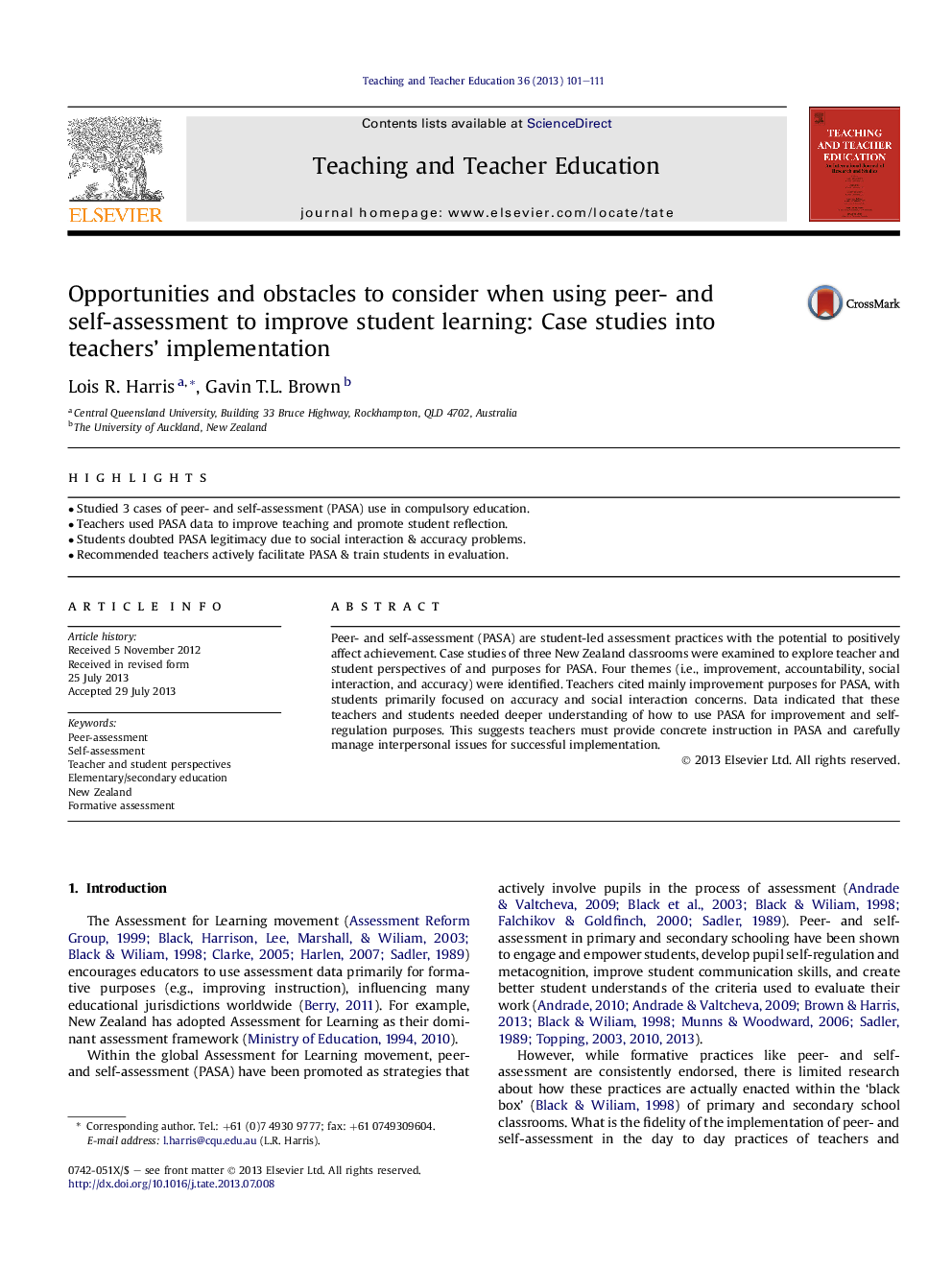| Article ID | Journal | Published Year | Pages | File Type |
|---|---|---|---|---|
| 374018 | Teaching and Teacher Education | 2013 | 11 Pages |
•Studied 3 cases of peer- and self-assessment (PASA) use in compulsory education.•Teachers used PASA data to improve teaching and promote student reflection.•Students doubted PASA legitimacy due to social interaction & accuracy problems.•Recommended teachers actively facilitate PASA & train students in evaluation.
Peer- and self-assessment (PASA) are student-led assessment practices with the potential to positively affect achievement. Case studies of three New Zealand classrooms were examined to explore teacher and student perspectives of and purposes for PASA. Four themes (i.e., improvement, accountability, social interaction, and accuracy) were identified. Teachers cited mainly improvement purposes for PASA, with students primarily focused on accuracy and social interaction concerns. Data indicated that these teachers and students needed deeper understanding of how to use PASA for improvement and self-regulation purposes. This suggests teachers must provide concrete instruction in PASA and carefully manage interpersonal issues for successful implementation.
